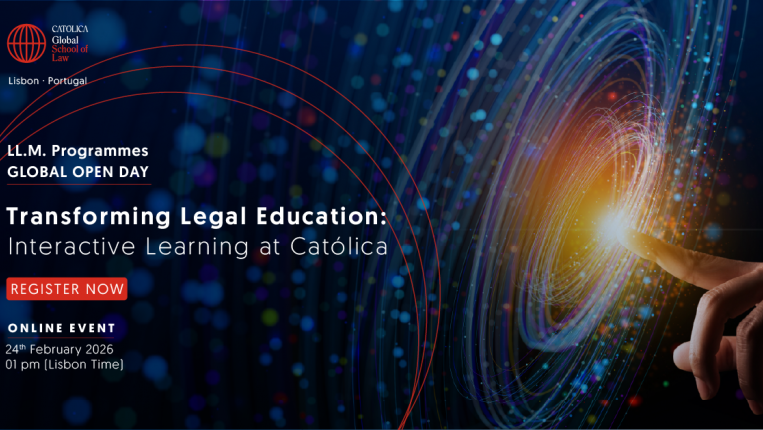In the ever-evolving landscape of legal education, experiential learning has emerged as an approach that aims to prepare law students for the complexities of real-world practice. Rather than relying solely on lectures and textbooks, programmes with an experiential learning dimension provide students with opportunities to immerse themselves in hands-on and highly practical activities.
At Católica Global School of Law, we are aware that legal practice demands more than just a theoretical understanding of the law and we recognize the crucial role that experiential learning can play in shaping the legal professionals of tomorrow. In fact, experiential learning allows students to develop crucial skills such as critical thinking, problem-solving, and effective communication — skills that are essential for success in basically any legal profession.
Católica’s commitment to experiential learning
At CGSL, we provide our students with different opportunities to have such active, hands-on engagement with the practical aspects of legal work. In the words of our Executive Dean Tito Rendas, this approach “is not necessarily better or worse than traditional legal teaching. The two approaches complement each other”.
In this article, we highlight three types of learning experiences we offer at Católica: the Skills Seminars, the Moot Courts, and the ‘Tech for Lawyers’ Bootcamp.
1. Skills Seminars
As the name suggests, our Skills Seminars focus on skill development, offering students the chance to hone their research, writing, negotiation, and advocacy skills in a supportive and realistic environment. This emphasis on practical skills ensures that our graduates are well-equipped to excel in different legal roles. Some of the most recent additions to our skills curriculum include seminars on ‘Data Science for Lawyers’ and ‘Legal Automation and Engineering’.
2. Moot Courts
CGSL boasts a vibrant moot court culture, providing students with many opportunities to sharpen their advocacy skills. Our teams have recently won the ‘Comparative Law in Action’ competition, held at IE Law School, in Madrid, and the regional rounds of the prestigious Philip C. Jessup competition, representing Católica in Washington DC. This year, a team of ours will be participating in the Helga Pedersen moot court, which allows the finalists to plead at the European Court of Human Rights, in Strasbourg.
3. ‘Tech for Lawyers’ Bootcamp
At the beginning of each academic year, the students enrolled in our LL.M. Law in a Digital Economy attend a one-week bootcamp run by experts in engineering and computer science at Instituto Superior Técnico – one of Europe’s leading engineering schools. The purpose of the bootcamp is twofold: to demystify the functioning of the digital technologies that students will discuss during the LL.M. programme and to foster their understanding of disruptive digital businesses, by having them conceptualize and pitch their own legal tech startup.




